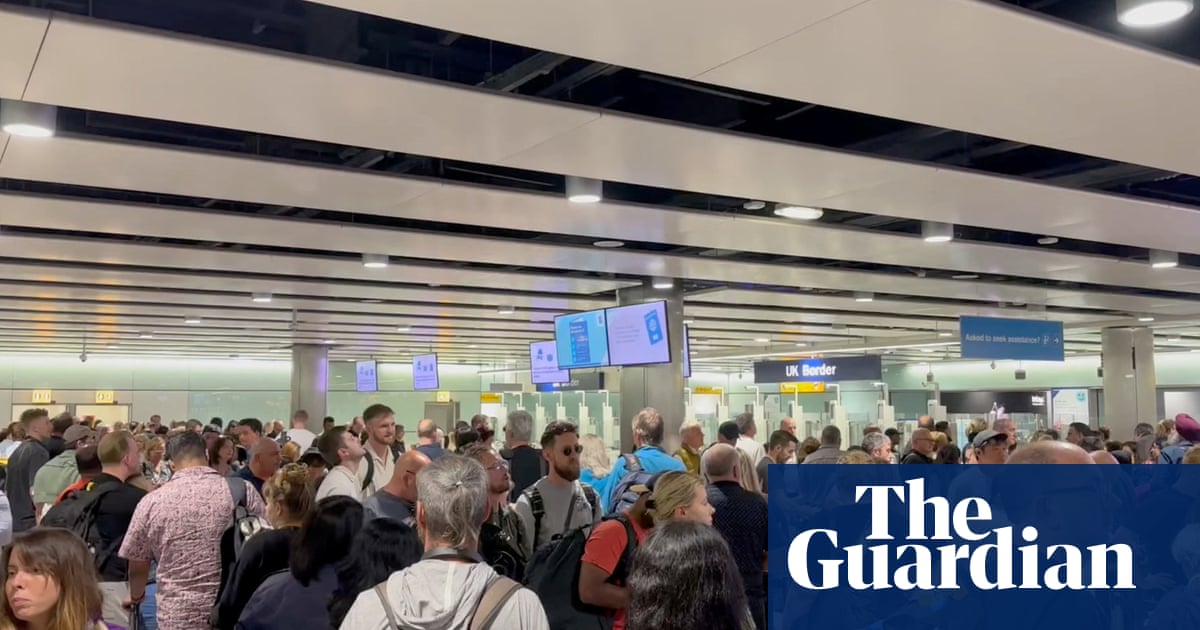Thousands of passengers were left waiting in queues for more than three hours at airports, on Tuesday evening, after a nationwide failure of the electronic passport gate technology system.
Nearly all major British airports were affected as the country’s 270 e-gates, the automated facial recognition systems at the border, were closed for more than four hours.
So, what exactly happened, will those affected be able to get compensation and could it happen again?
What happened?
Just before 8pm on Tuesday night, engineers detected a network issue on the system that runs the e-gates, which are in place at 15 air and rail ports around the country. It also affected some policing, passport and immigration systems.
The problem forced the e-gates to be shut at major airports, including Heathrow, Gatwick, Manchester and Edinburgh. Border officials had to manually process travellers instead, causing huge delays and tailbacks. The system was back online by 12.30am.
Despite calls for transparency over what was behind the issue, the government has so far been vague, blaming “technical issues within the Home Office network”.
In a statement to parliament, Tom Pursglove, minister of state for legal migration and the border, said that Border Force was confident it had found a permanent fix for the issue.
He ruled out a cyber-attack as the cause, but would not give any more details, saying he did not want to “pre-empt” the investigations the Home Office was carrying out.
Pursglove said: “I sincerely apologise for the disruption that occurred. I can assure the house that the home secretary and I will be unswerving in our determination to ensure that every possible lesson is learned, to ensure that this does not happen again.”
Has this happened before?
The outage was the latest in a long line of failures of the e-gate system.
Two weeks ago, a “nationwide technical outage” led to queues at Edinburgh, Gatwick and Bristol airports.
The most significant breakdown in recent times was in May last year, when passengers at UK airports and ports experienced long delays ahead of the second May bank holiday. Again, the Home Office blamed a system fault which affected all e-gates for arrivals into the country.
This came after three separate e-gate outages across UK airports in three months in the latter part of 2021.
There have been repeated warnings about the system in recent years by government watchdogs.
A report from David Neal, then-independent chief inspector of borders and immigration, warned of failings with the running of e-gate system in 2021. A follow-up report, in February 2024, which came after a re-inspection of e-gates last summer, found that border protections were neither “effective or efficient” and found that e-gates were sometimes left unstaffed.
after newsletter promotion
Will affected passengers be in line for compensation?
It is unlikely the majority of passengers would be in line for compensation.
Such incidents are seen as “extraordinary events” by airlines, and not covered by European-wide regulations that require airlines to provide assistance or compensation to passengers if a flight is delayed or cancelled.
However, Rory Boland, editor of Which? Travel, says that some passengers may be able to recoup some money through their travel insurance.
He says: “Apart from connecting flights there are other incidental costs that some people can incur, around things like airport parking, or parking charges for late pick-ups, and having to pay for taxis because public transport has stopped.
“It is definitely worth checking your policy to see if you are covered for these.”
Could it happen again?
There are fears that this will not be the last time we will see a system-wide failure.
One government adviser tells the Guardian that travellers could face a summer of chaos because the government could not guarantee that the system would not collapse again.
“One of the vulnerabilities is that it is open to individual errors which can then affect the entire system,” the Whitehall source says. “The problem has been underinvestment under consecutive governments. And it is a glitch that cannot be easily fixed – it will require dismantling the system and starting again.”
Lord Foster, who chairs the Lords justice and home affairs committee, says it is paramount that the government learns lessons from the breakdown, particularly as a new Electronic Travel Authorisation (ETA) system is due to be rolled out across the remainder of 2024.
The ETA is a permit, similar to the US Electronic System for Travel Authorization, known as an Esta, which all non-UK and Irish travellers will need to enter the UK and is designed to stop potential threats to the country at the border.
He said: “The government’s ambition is to have ‘the most effective border in the world’. In order to achieve this ambition, the government must get the fundamentals right.”







